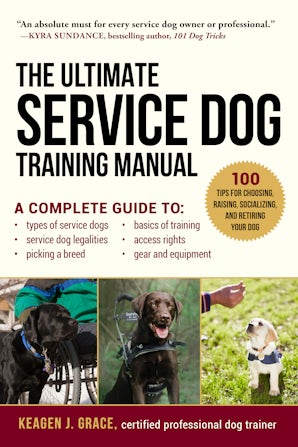Leading Dog Training Strategies for each Phase of Your Pet's Life
Reliable pet training is necessary at every phase of a pet's life, as each stage offers one-of-a-kind obstacles and possibilities for development. It is vital to identify that training needs to advance along with a pet's growth, making certain that approaches stay appropriate and efficient.
Young Puppy Training Essentials
Puppy training essentials prepared for a mannerly grown-up pet dog and include several vital parts that must not be ignored. The preliminary phase of training concentrates on establishing a strong bond in between the young puppy and its owner, which is crucial for reliable interaction. Socializing is vital; subjecting puppies to numerous atmospheres, people, and various other animals helps them create confidence and adaptability, minimizing the possibility of behavior problems later in life.
Fundamental commands, such as sit, remain, and come, form the structure of obedience training. Using favorable reinforcement strategies, such as treats and praise, motivates desired habits and fosters a favorable learning experience. Uniformity in commands and training sessions is vital, as puppies flourish on routine and structure.
Additionally, home training is a vital aspect of young puppy training. Establishing a routine schedule for shower room breaks and making use of assigned locations can aid reduce crashes and promote great habits. Generally, a well-rounded technique to puppy training, incorporating obedience, house, and socializing training, establishes the phase for a well-adjusted adult canine, ensuring a harmonious connection in between the pet and its owner.
Teen Actions Management
As puppies develop right into teens, their actions can transform dramatically, typically offering brand-new obstacles for proprietors. This developing stage, generally happening between six months and two years, is marked by increased power degrees, inquisitiveness, and a burgeoning feeling of freedom. Understanding these adjustments is crucial for effective behavior management.
Adolescents may exhibit rebellious tendencies, such as disregarding commands they previously mastered or taking part in destructive behaviors. Uniformity in training continues to be extremely important; enhancing found out behaviors with positive reinforcement can help neutralize these obstacles. Brief, appealing training sessions are vital to preserve their rate of interest and focus.

Furthermore, developing an organized regimen can significantly improve a teenage pet's complacency. Routine exercise is crucial to funnel their energy positively, decreasing the probability of unwanted actions. By utilizing these strategies, owners can successfully browse the complexities of teenage actions, cultivating a well-adjusted, happy canine companion.
Grown-up Pet Obedience Strategies

Favorable reinforcement stays a vital technique; satisfying etiquette with treats, appreciation, or play encourages compliance. Uniformity is critical; the same commands and benefits must be made use of by all member of the family to avoid confusion.
Integrating training right into day-to-day routines can also be efficient. Technique commands have a peek at this website during walks or meal times, allowing training to blend flawlessly into daily life. Participating in organized tasks, like dexterity courses or obedience classes, can further enhance a dog's skills while providing valuable socialization opportunities.
It is very important to recognize that adult pets may also exhibit stubbornness or complacency. Adjusting training strategies to keep their passion, such as differing benefits or introducing brand-new commands, can aid endure motivation. Generally, a continuous commitment to obedience training will certainly cultivate a well balanced and mannerly adult canine.
Senior Pet Adaptation Techniques
Recognizing the one-of-a-kind demands of senior dogs is vital for guaranteeing wikipedia reference their comfort and wellness. As pets age, they might experience a decline in wheelchair, vision, and cognitive function, necessitating customized adaptation strategies.
First, consider changing the living atmosphere. Ensure that the home is easily accessible and risk-free; get rid of challenges and provide non-slip surface areas to prevent drops. Furthermore, think about making use of ramps or actions to assist them access their favored spaces.
Secondly, workout must be gotten used to account for reduced stamina and joint wellness (Dog Training For Dogs). Participate in shorter, a lot more frequent strolls, and integrate gentle activities like swimming, which can be advantageous for arthritic joints
In addition, psychological stimulation continues to be crucial. Usage easy puzzle playthings or take part in scent work to keep their minds sharp, while staying clear of frustrating tasks that may annoy them.
Finally, normal vet check-ups are necessary to monitor health modifications and change care regimens appropriately. By carrying out these adjustment approaches, you can boost the quality of life for your senior dog, ensuring they age gracefully and comfortably.
Lifelong Knowing and Enrichment
While canines of any ages benefit from learning and mental excitement, long-lasting enrichment is specifically crucial for keeping cognitive health and wellness and emotional wellness in both senior and more youthful pet dogs. Involving activities not only improve a pet's top quality of life but additionally strengthen the bond in between the pet and its proprietor.
Enrichment can take different forms, consisting of interactive playthings, challenge feeders, and aroma job, which promote a canine's senses and urge analytical. Routine training sessions, incorporating brand-new commands or techniques, keeps their minds sharp and advertises a sense of achievement. Socialization with various other canines and people is just as crucial, as it assists prevent behavior problems and go fosters flexibility.
Moreover, including physical workout into a pet dog's regimen is essential for overall health and wellness. Activities like dexterity training, bring, or long walks provide both physical and psychological stimulation, guaranteeing pets remain satisfied and involved.
Last but not least, take into consideration differing the atmosphere by introducing brand-new areas for walks or playdates. This modification can reignite a dog's curiosity and excitement for exploration. Lifelong learning and enrichment not only add to a satisfying life yet likewise promote a harmonious partnership with your canine companion.
Verdict
Efficient dog training methods develop throughout a dog's life, attending to the one-of-a-kind demands of each developmental stage. From developing foundational abilities in pups to handling teenage behaviors, strengthening obedience in adults, and adjusting strategies for seniors, a thorough technique ensures ideal communication and actions. Highlighting routine mental excitement, socialization, and exercise fosters a well balanced and fulfilling life for pets. Inevitably, constant application of these techniques adds to an unified relationship in between dogs and their human friends.
Effective dog training is vital at every phase of a pet dog's life, as each stage provides special difficulties and possibilities for growth.Puppy training essentials lay the foundation for a well-behaved adult pet and include several essential components that must not be ignored. Overall, a well-rounded technique to puppy training, integrating home, socializing, and obedience training, establishes the stage for a well-adjusted grown-up pet dog, ensuring an unified connection between the pet dog and its owner.
Numerous canine owners may find that adult dogs, while typically more secure in behavior than their teen equivalents, still call for consistent training to preserve obedience and excellent manners.Reliable pet dog training methods evolve throughout a canine's life, resolving the special requirements of each developing phase.